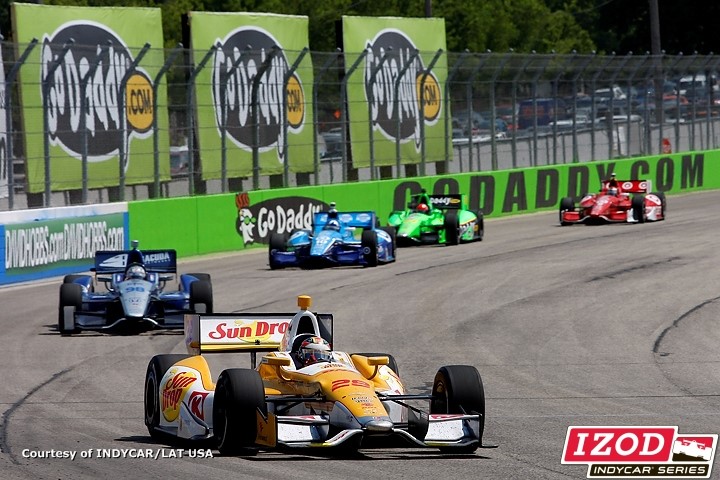We’re All Ride-Buyers Now
 |
One way or another, everyone buys their ride.
It is a universal truth. The exceptions are so few and far between as to be irrelevant.
This applies to IndyCar, NASCAR and Formula 1. It applies to your local quarter-mile dirt track. It applies to the 24 Hours of LeMans and ALMS and everything in between.
If you are an aspiring racecar driver, get this through your head – if you don’t bring something besides your driving talent to the table, you won’t be in this business very long. That’s not immoral. That’s just the way it is.
My current Super Cup ride is predicated on several business deals. My new ARCA Truck ride is also strung together by a deal involving four companies.
I tested with a Rolex team. Did fine with the car, but that’s not why I was there. I was there because I had interest from an oil company who was looking at the series as an advertising outlet. When that deal fell apart, so did my ride. Going fast didn’t help.
It’s not just me. It’s everybody at every level. I knew Joey Logano before he got his first development contract. His family funded his racing. His dad joked about how happy he was when Joey got into Cup because some money was finally coming in instead of going out.
Their early competitors knew Helio Castroneves and Tony Kanaan as the “Bra zillionaires." Jeff Gordon’s step-dad cut a smart deal with Pepsi. That money took him through open wheel racing and into NASCAR.
Former IndyCar driver Dennis Vitolo raised money with a second mortgage and credit cards. Scott Pruett took his life savings ($70,000) and bought an IndyCar ride with Dick Simon. Now before you get all misty, ask yourself this – what 26-year-old kid has 70 grand in his life savings? Chew on that for a minute.
Danica Patrick’s dad is a smart businessman who gave her a good start. Sponsors fall all over themselves to sign her. IndyCar’s Charlie Kimball cut a deal with a Danish medical empire. Katherine Legge’s seat is secured by cash from a company that manages automotive price reports.
Now look at the middle levels of the sport. NASCAR short track and ProCup ace Jay Fogleman owns a construction company. Super Cup driver Jamie Vaughn worked in the West Virginia coal mines to save up enough money to buy his seat.
Look at the entry levels of the sport. Anyone can buy a LeMons ride for about $600. Most short track oval drivers fund their own teams.
The list is endless and I’m not knocking the people on it. I’m simply dispelling a foolish myth that should have been shot down long ago.
For years people have whined that former driver Marty Roth “bought his way into IndyCar," while Formula 1 driver Rubens Barrichello somehow has Divine approval for his career. Hogwash. Barrichello couldn’t get the time of day until a Brazilian construction company bought his IndyCar seat for him.
Obviously, some drivers perform better than others once they’re on the track. But they all get there the same way.
You are sure to run across those who will argue this to the death and instantly spout a laundry list of drivers that they “know for a fact" didn’t bring a dime of anyone’s money to their rides.
98% of the time they don’t realize that there was money changing hands behind the scenes or a family business connection within the team that supported the deal. The other 2% may have actually occurred but the instances are so rare that the greater point still stands.
Look, getting into auto racing is really simple. You only have to do two things:
1. Find the money to buy the seat.
2. If 24 cars start the race… qualify faster than the 25th guy.
If you can do that, yes, you “belong." Whether your last name is Vitolo, Roth, Andretti or Rahal makes no difference.
It is true that some drivers are better at marketing and some are better at driving. And yes, this allows some lesser drivers to “make it" in the sport.
But this is still a massive improvement over the early days of racing when only the uber-rich could participate. At least now the middle classes can participate by using someone else’s money. The sport is open to more people today than at any time in the history of the automobile.
Ride “buying" is not an obscenity. And yes, there’s a 98% chance that your favorite driver is a ride-buyer, too, so don’t go all high-and-mighty on me. Sometimes they buy it with their own money, sometimes with someone else’s. But everyone buys. And if someone else shows up with more money, they’re gone. The ones who deny it are lying.
This is not new. It happened thirty years ago when no one was paying attention.
It’s not a crime; it’s just the evolution of the sport. We should get used to it. We’re all ride-buyers now.
